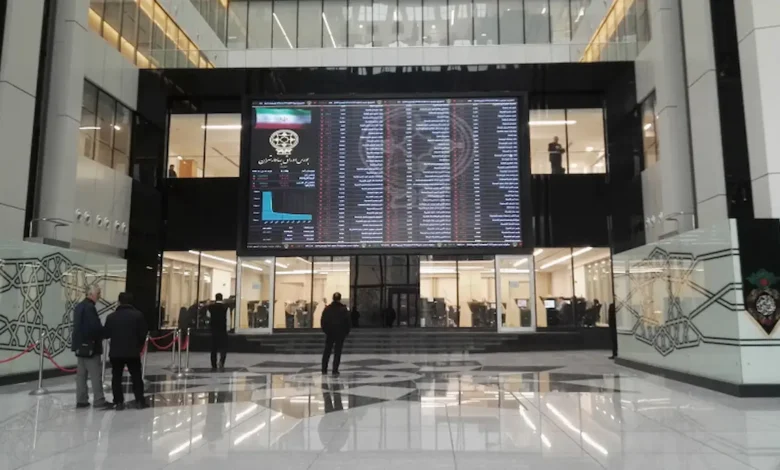Identifying the main risks of the capital market / Why is the stock market not growing? – Tejarat News

According to Tejarat News, the stock market is going through a recession these days and has not been able to experience transactions with a volume higher than 10 billion shares for a long time. In the best conditions, the volume of small transactions reached seven billion shares, which could not register a positive trend in terms of value due to the decreasing value of the stock price.
Today’s trading in Tehran Stock Exchange is a good example of the recession pit in which the stock market has fallen. Today, while the total index of the Tehran Stock Exchange increased by 1.44% and the weighted index experienced a growth of 1.93%, but the volume of retail transactions did not exceed seven billion and 100 million shares and the value of retail transactions remained at the bottom of four thousand billion Tomans!
Even on the current day, which is considered one of the best trading days of the Tehran Stock Exchange and real money inflows have been experienced, the amount of money outflows in the recent days of the market was not compensated. Although this positive atmosphere is also a source of hope in the hearts of the market activists, the shadow of some threats still remains over the Tehran Stock Exchange and has caused the real players of this market to be passive.
2 worrying factors for the capital market
Capital market experts refer to several cases such as high interbank interest rate, budget deficit, inflation, dollar price fluctuations, government policy decisions and other such factors as market threatening factors. In the meantime, Ahmed Ishtiaghi, a capital market expert, has taken a closer look at this matter.
According to him, the major concerns of the stock market in the current situation are caused by two factors; The first issue is related to the lack of activity in the trade flow. In the past months, the uncertainty of investors to enter the stock market has become one of the main challenges of the market. Lack of trust in Tehran Stock Exchange has affected the direction of money flow towards transactions in the Glass Hall. The analysis of the lack of activity in the mentioned market shows that one of the most important factors influencing this inactivity is related to issues such as the decisions of the people of the hour and economic policies; A factor that has prevented powerful money from entering the market in various ways.
In the continuation of his note which he published in the newspaper Dunya Ekhtaz, Ishtiaghi stated that due to the fact that some of the policies of various institutions have targeted the profits of listed and over-the-counter companies and the stock market trustees have not shown an appropriate reaction, investors have been targeted. is that the said market has a high risk tolerance; Hence, while all asset markets are grappling with non-economic risks, including war, markets that inherently have less inherent risk are among the markets that will see less money inflow.
The destructive effect of policymakers’ disagreements on the stock market
According to this capital market expert, in the past year, in addition to macro variables affecting the capital market, some conflicting decisions of policymakers, including the dispute between the Ministry of Privacy and the Stock Exchange Organization over the supply and pricing of cars in the commodity exchange, have caused a fluctuating and ambiguous trend in This market has been established.
Ishtiaghi believes that in most cases, it has been seen that the continuation of disagreements among policymakers has caused countless questions to be raised about the status of related industries after many months have passed since the beginning of the series of high-margin decisions. This situation is in addition to this issue, in other areas, including political and economic sectors, each according to their priorities, they have affected the entire stock market and various industries.
According to him, the second issue is the external risks that have affected the capital market in a state of instability. But maybe among these two factors, the role of the first issue can be considered more prominent than the second factor. Due to the fact that the stock market has changed direction many times in the last three years under the influence of high-risk legislations, we can clearly see the policymaker’s footprint in the erosion process of stock indexes.
Ishtiaghi further pointed to the recent experience of the capital market and stated: We saw an experience close to this situation last year, so that the stock market under the shadow of some policies could not overcome the currency and coin markets in 1401 at the same time as the expectations intensified. accompanied by swelling. The neutral trend of stock markets against the rise of rates in the currency market and inflationary expectations in the previous year even affected the emotional reaction of investors.
According to this capital market expert, every year during the assembly season, we saw an increase in the prosperity of the market and the warm presence of investors. But the shareholders’ fear of continuing to apply contradictory and sudden policies led to the weakening of the demand side and the highlighting of price correction scenarios even in the medium and long term.
Read more reports on the capital market page.

